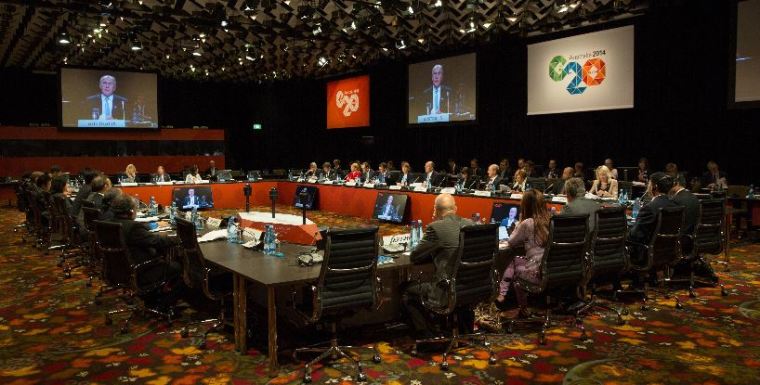

The world's 168 million child labourers are firmly on the G20's radar after a pivotal meeting of the world's labour and employment ministers in Melbourne.
World Vision CEO Tim Costello has welcomed the ministers' strong stand against child labour, including a commitment to prioritise measures to eliminate forced and child labour.
"One in ten of the world's children aged over five are labouring to the detriment of their health, their education and their future," Mr Costello said.
"The scale of this issue, and the complexity of global supply chains, many of which rely on exploitative labour, means a co-ordinated global effort is needed to reduce demand for products made off the back of children living in poverty.
"The G20 Labour and Employment Ministerial Meeting – led by Australia's Minister for Employment Eric Abetz – has taken an important first step towards greater international co-ordination of efforts to address the scourge of child labour."
The ministers' commitment comes as Australia prepares to host the leaders of the world's largest economies in Brisbane in November.
Earlier this year, World Vision International released a report calling on the G20 to take co-ordinated action to influence the market conditions which allow child exploitation to continue.
The report: Creating markets for child-friendly growth demonstrated that G20 governments possess both a responsibility and the influence required to help improve the lives of some of the world's most vulnerable children.
"As representatives of the world's largest and most influential economies, the G20 has both the opportunity and responsibility to protect vulnerable children from economic exploitation," Mr Costello said.
A recent report from Citi, which assesses risks of modern slavery and child labour in global industries and ASX-listed companies, demonstrates how child labour "helps to perpetuate poverty and can hinder a country's economic development" as well as present numerous risks for investors and businesses.
World Vison Australia child protection policy adviser Nat Burke said that some of the economic impacts of child labour include increased adult unemployment and lower wages, reduced direct foreign investment and slowing technological progress in the workplace.
"The G20 is a forum with a special mandate to help create jobs and foster inclusive economic growth, and the statement from G20 Labour Ministers is a powerful acknowledgment that tackling child labour is everybody's business.
"We're delighted to see the G20 labour and employment ministers standing up for some of the world's most vulnerable children, and hope to see an equally strong commitment at the Leaders' Summit in November."
World Vision is calling on G20 nations – who represent 85 per cent of global GDP – to use their massive purchasing power to address child labour exploitation and build strong, sustained and balanced economic growth.
"Today's reality is that the goods purchased by governments and individual consumers alike are increasingly 'made in the world' via long and complex global value chains. Pressures to create products at the lowest possible price and the fragmentation of production processes mean that child labour can be hidden at virtually any stage of production," Mr Burke said.
The Creating markets for child-friendly growth report sets out the need for a common approach to identifying, reporting and addressing child labour in the value chains of the $10 to $15 trillion worth of goods and services that G20 governments are expected to purchase in 2014.
"The massive purchasing power which governments wield when they source goods has the potential to create markets for goods which are NOT produced on the back of human rights violations," Mr Burke said.
"With 44 per cent of child labourers between 5 and 11 years of age, world leaders must step up and work co-operatively to ensure human rights, including the rights of children to be protected from economic exploitation, are protected and respected throughout the value chain."
By developing and committing to a common approach to addressing labour exploitation in supply chains, G20 Leaders can put the best interests of the child at the centre, while also ensuring greater clarity and certainty for suppliers and subcontractors.